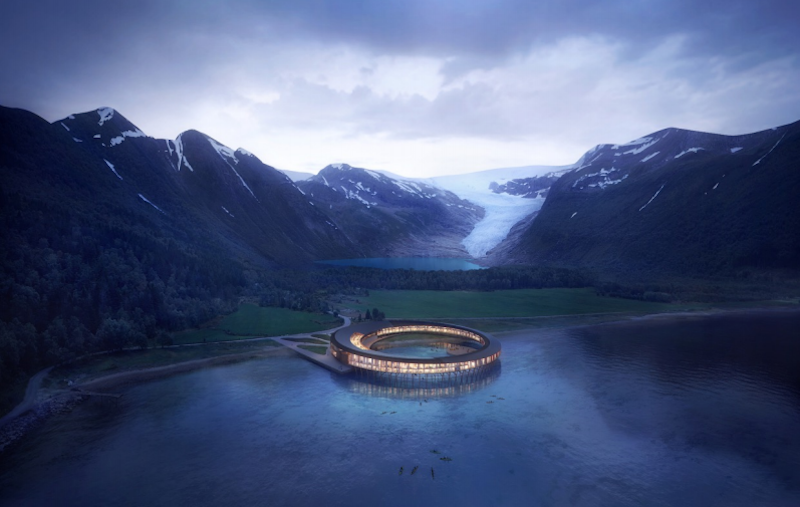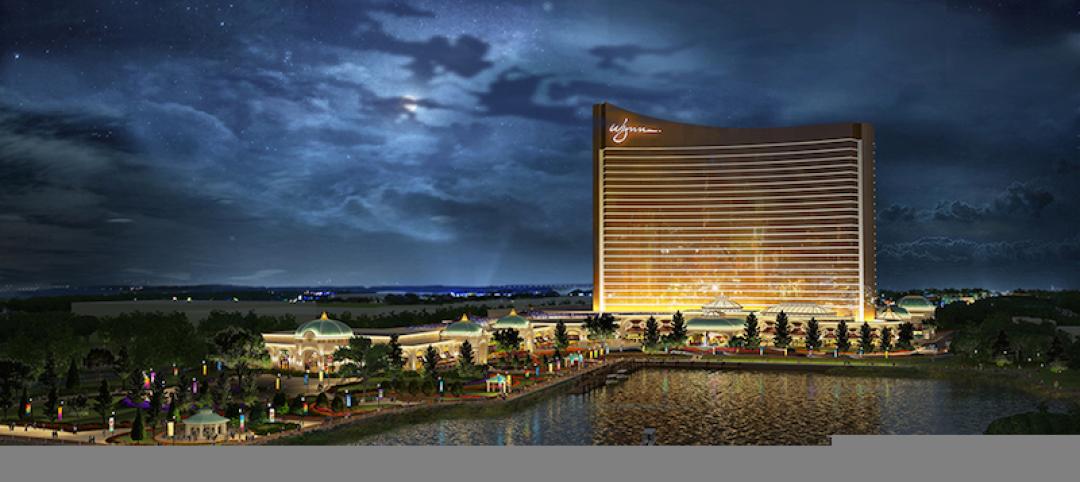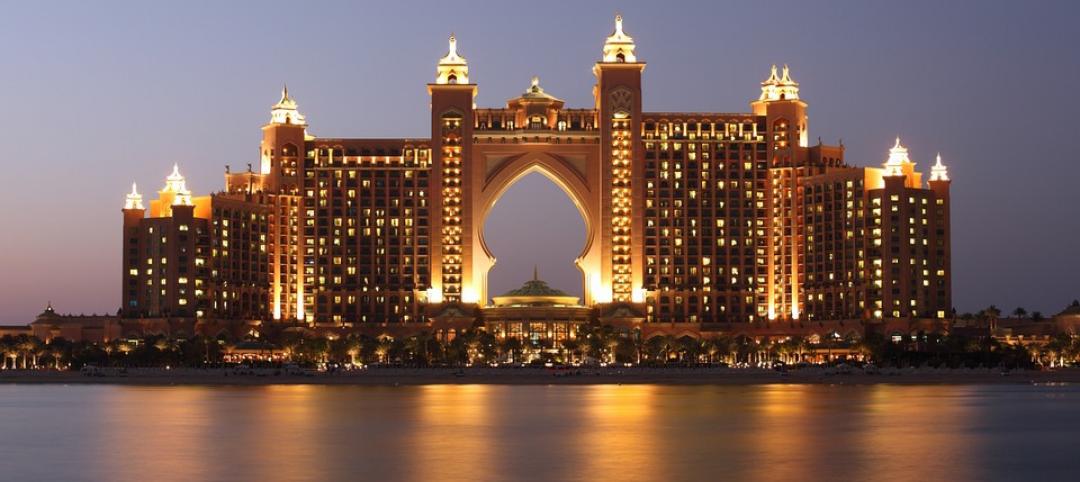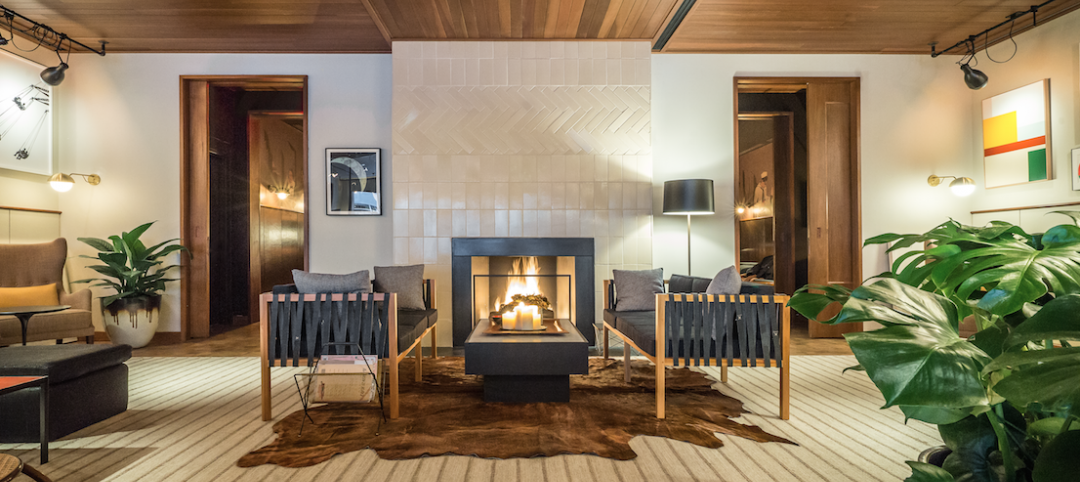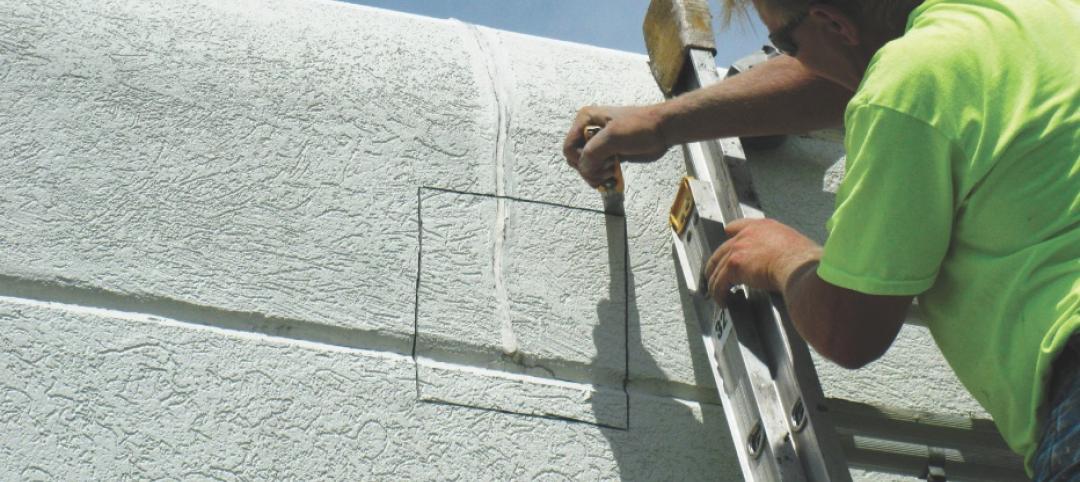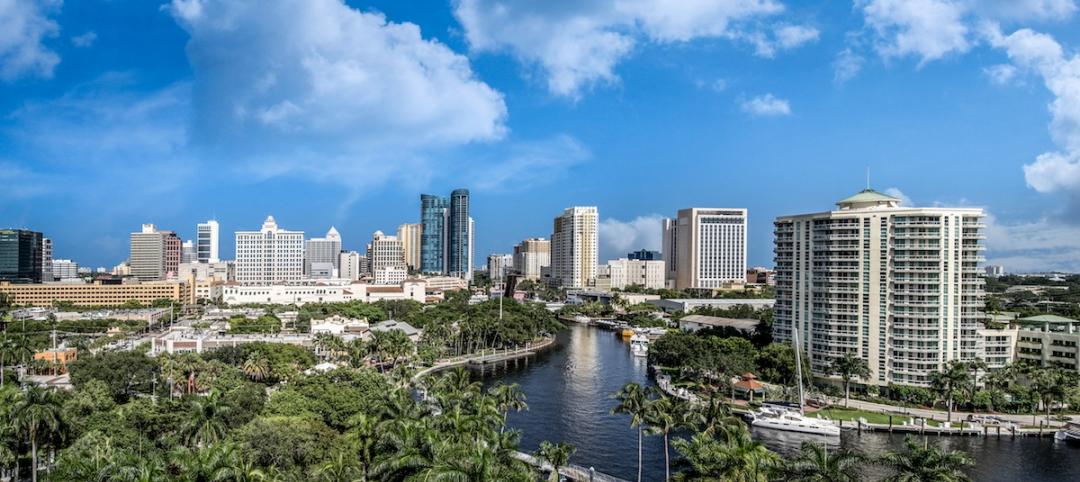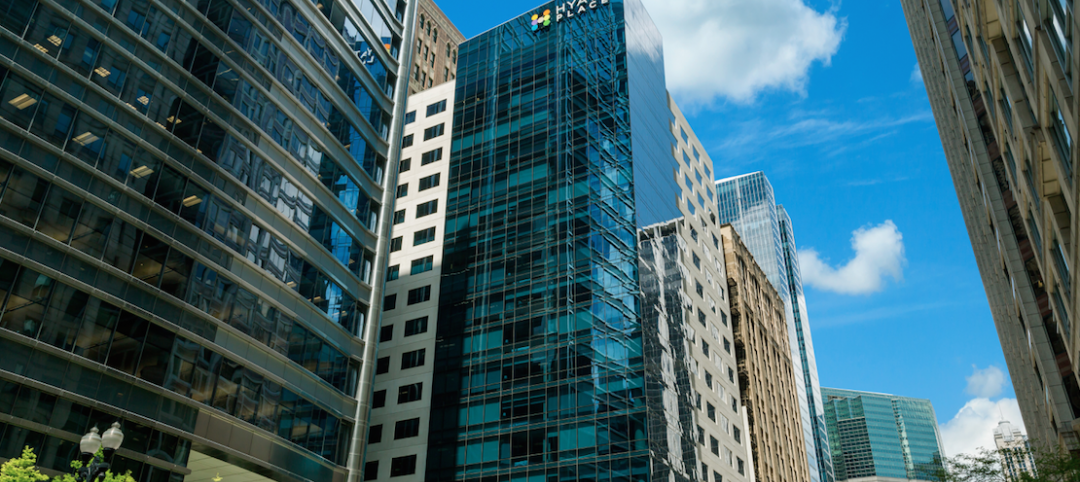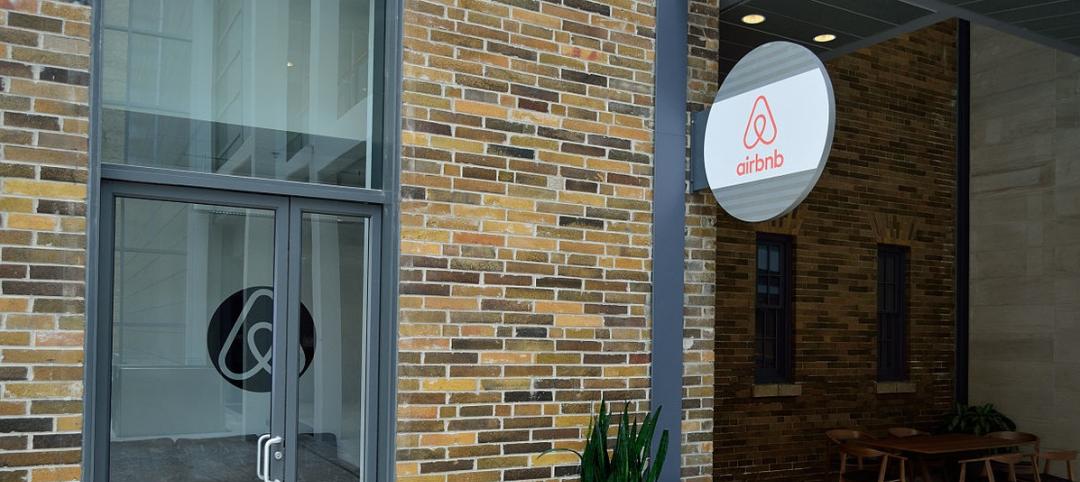Snøhetta, in collaboration with Arctic Adventure of Norway and the Powerhouse Collaboration*, is creating the first building in a northern climate to be built according to the energy positive Powerhouse standard. The building, a circular hotel dubbed “Svart,” will reduce its yearly energy consumption by approximately 85% compared to a traditional hotel and will also produce its own energy.
The hotel will be built in northern Norway near the Svartisen glacier. The hotel’s circular body will extend from the shoreline by the foot of the Almlifjellet Mountain and into the waters of the Holandsfjorden fjord. The design is inspired by a “fiskehjell” (an A-shaped wooden structure for drying fish) and a “rorbu” (a traditional type of seasonal house used by fisherman).
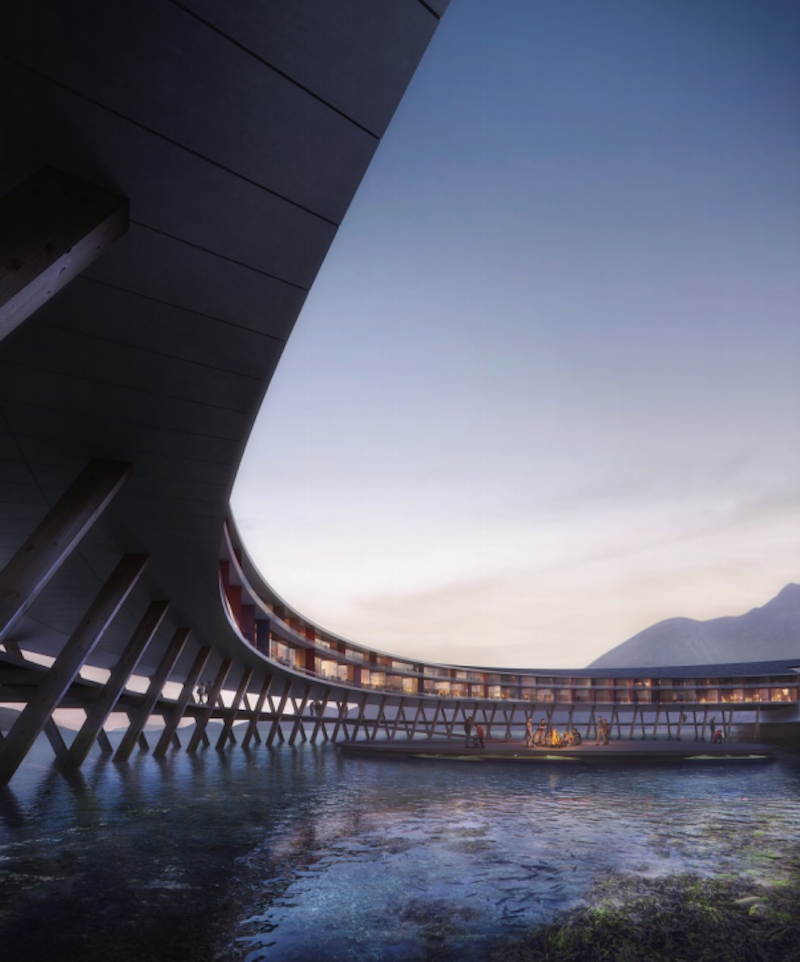 Courtesy Snøhetta
Courtesy Snøhetta
The rorbu inspiration can be seen in the hotel’s supporting structure, which is built from weather-resistant wooden poles that rise from several meters below the surface of the fjord. The poles ensure the building creates a minimal footprint in the environment. The poles also create a wooden boardwalk for visitors that can be used to store boats and kayaks, reducing the need for other storage structures.
Hotel rooms, restaurants, and terraces have been specifically places to maximize use of the sun’s energy throughout the day and the seasons. The hotel’s façades protect against insolation from the sun in the summer while the large windows allow for maximum insolation during the winter months. This eliminates the need for artificial cooling in the summer and drastically reduces the need for artificial heating in the winter. The roof also makes use of the sun’s energy as it is clad with Norwegian solar panels produced with clean hydro energy. Additionally, materials with low embodied energy will be used to reach the Powerhouse standard.
“Building in such a precious environment comes with some clear obligations in terms of preserving the natural beauty and the fauna and flora of the site,” says Kjetil Trædal Thorsen, Founding Partner, Snøhetta. “Building an energy positive and low-impact hotel is an essential factor to create a sustainable tourist destination respecting the unique features of the plot; the rare plant species, the clean waters and the blue ice of the Svartisen glacier.”
In order to be considered a Powerhouse plus house, over the course of a 60-day period a building must generate more renewable energy than the total amount of energy it would require to sustain daily operations and to build, produce materials, and demolish the building.
*Powerhouse is a collaboration between Snøhetta, Entra, Skanska, the ZERO Emission Resource Organization, and Asplan Viak for building plus houses.
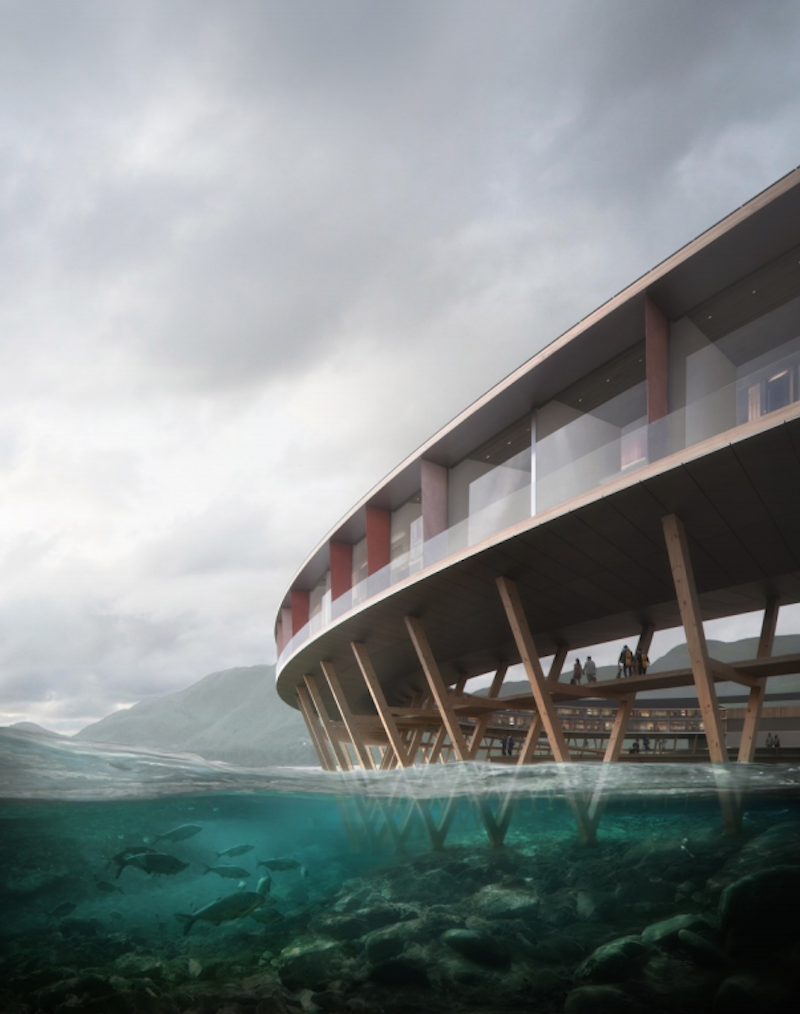 Courtesy Snøhetta
Courtesy Snøhetta
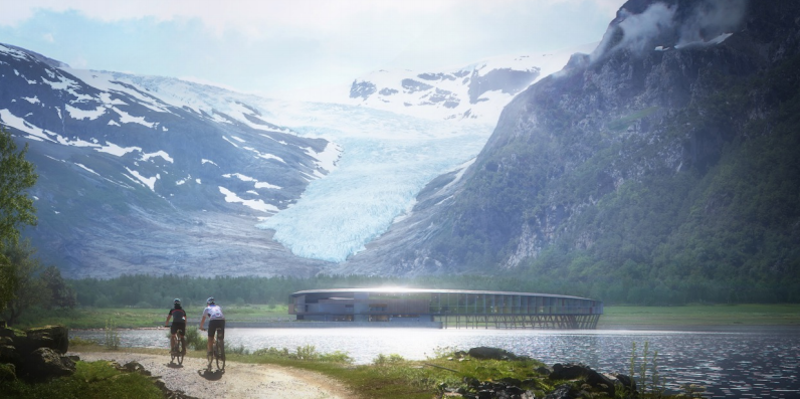 Courtesy Snøhetta
Courtesy Snøhetta
Related Stories
Modular Building | Feb 1, 2016
Hotel developers turn to modular construction to meet demand
A $90 million rebuilding project in Yellowstone National Park exemplifies this trend.
Casinos | Jan 30, 2016
Boston ends its opposition to a casino, Wynn to build $1.7B resort
A judge’s ruling last year paved the way for Wynn Resorts to begin construction on a 33-acre gambling palace in Everett, Mass.
Resort Design | Jan 26, 2016
Atlantis planning to build the world’s most expensive resort in Hawaii
The project was first announced in 2005 but has progressed little since.
Hotel Facilities | Jan 19, 2016
8 trends sparking the hospitality sector
Hotels and restaurants are branching out to attract more customers—and hold onto them longer.
| Jan 14, 2016
How to succeed with EIFS: exterior insulation and finish systems
This AIA CES Discovery course discusses the six elements of an EIFS wall assembly; common EIFS failures and how to prevent them; and EIFS and sustainability.
Hotel Facilities | Jan 13, 2016
Hotel construction should remain strong through 2017
More than 100,000 rooms could be delivered this year alone.
Urban Planning | Jan 4, 2016
The next boomtown? Construction and redevelopment sizzle in San Diego
The city's emission-reduction plan could drive influx into downtown
Hotel Facilities | Dec 14, 2015
Greater Fort Lauderdale is enjoying a building boom
This business-friendly South Florida market has several large hotel and multifamily projects in construction.
Greenbuild Report | Dec 14, 2015
Sensible sustainability: The new standard for hotels
In October 2008, The Proximity, a 147-room hotel in Greensboro, N.C., became the first LEED Platinum–certified hotel in the U.S. Since then, only two other hotels have earned LEED Platinum.
Multifamily Housing | Dec 7, 2015
Are long-term apartment rentals Airbnb’s next target?
Some developers are thinking about that possibility, says one West Coast real estate consultant.


